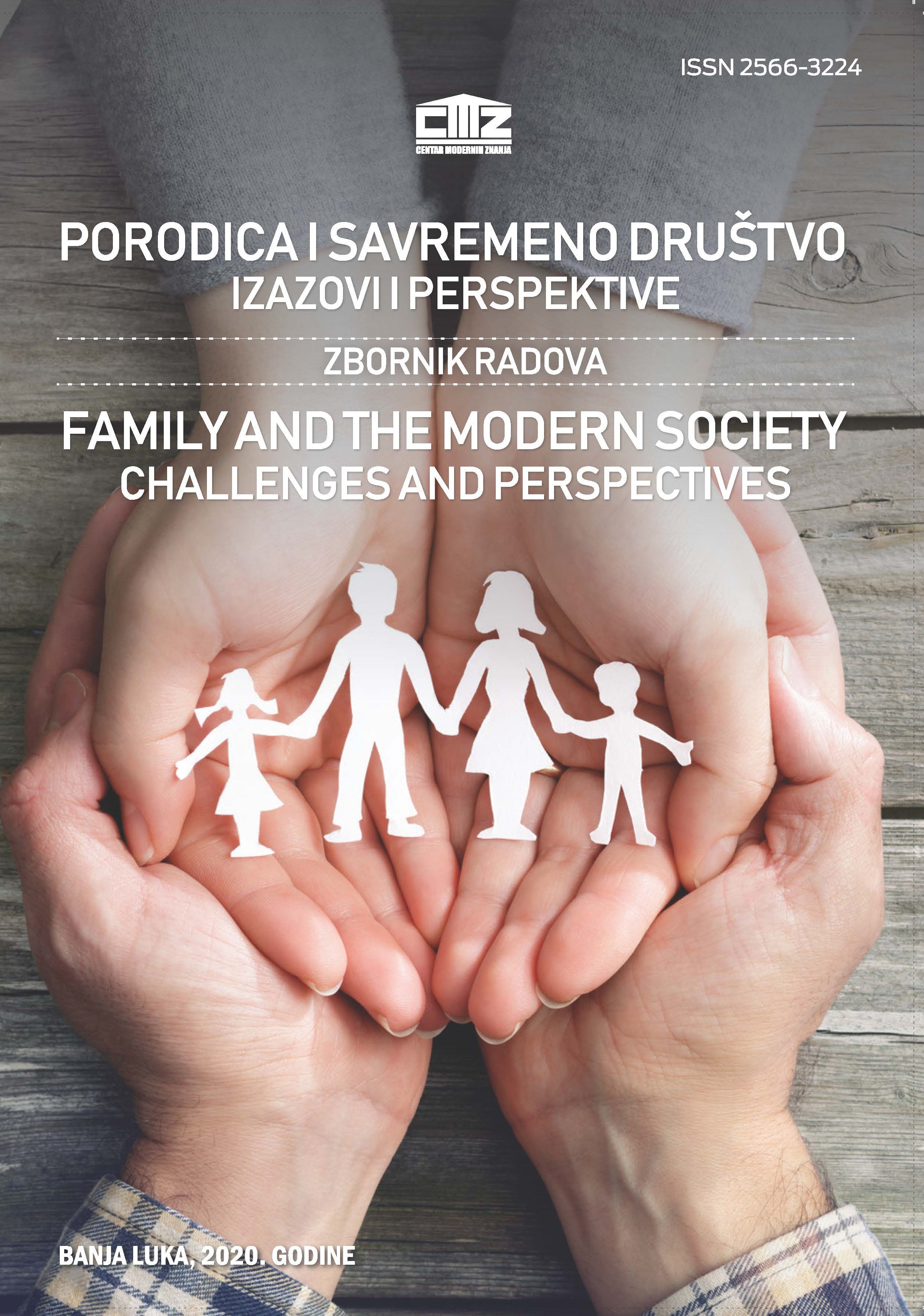SVAKODNEVNI ŽIVOT U CRNOGORSKIM PORODICAMA
EVERYDAY LIFE IN FAMILIES IN MONTENEGRO
Author(s): Borislav Đukanović, Svetlana DukovićSubject(s): Gender Studies, Sociology, Behaviorism, Family and social welfare, Sociology of Culture
Published by: CENTAR MODERNIH ZNANJA
Keywords: everyday life; family; Bourdieu;
Summary/Abstract: The starting theoretical basis of this study is Bourdieu's theory. The research covers the following areas of family life: distribution of family roles and authorities, marital and family conflicts, connection of families with the social environment, and satisfaction with family life. Two main goals of the research have been set to:- describe the functioning of Montenegrin families in the above five areas of everyday life;- to examine the connection between the functioning of Montenegrin families in the above five areas with class-layer affiliation A randomized stratified sample for this study consisted of 805 respondents from the Northern, Central, Southern regions and Podgorica. In the first instance, municipalities were elected, in the second polling stations, and in the third instance, respondents from each polling station. A special questionnaire was constructed for the purposes of this research. All respondents are classified into eight strata according to class - class affiliation: upper class, experts, small private individuals and self - employed, civil servants and technicians, skilled and skilled workers, skilled and skilled workers, farmers and members of the subclass. Due to the very weak response of medium-sized, and especially large entrepreneurs, these layers were not included in the research. The results of the research indicate that there have been significant changes in the everyday life of Montenegrin families, primarily in family decision-making. Women still do most of the family work. Changes in that area of everyday life are less than in family decision-making in which men are not always dominant. Moreover, the most important change in the daily life of families is in the sphere of decision-making, where female family members get significantly greater rights, and in the "lower" social strata, older female relatives of husbands, especially grandmothers, which is a kind of cultural anachronism, given the Montenegrin patriarchal heritage. Relationships in Montenegrin families are very conflicted and are conditioned by the loss of dominant positions of men in families. Conflicts over the acquisition and spending of funds, housing problems and parental disagreement in methods of raising children are particularly pronounced. It is especially important to emphasize that there are very significant class-layer differences in all these areas of everyday life of Montenegrin families, especially in the assessment of parental satisfaction with everyday life, which is in line with Bourdieu's theoretical heritage.
Journal: DRUŠTVENE DEVIJACIJE
- Issue Year: V/2020
- Issue No: 5
- Page Range: 61-71
- Page Count: 11
- Language: Serbian

